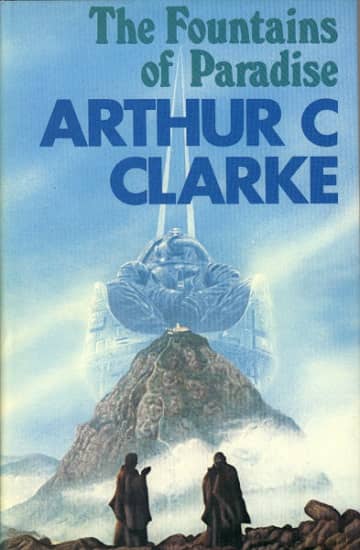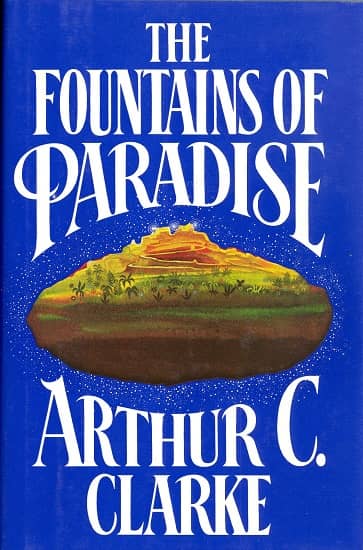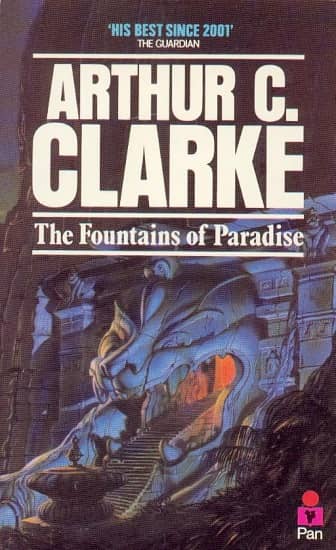The Golden Age of Science Fiction: The Fountains of Paradise by Arthur C. Clarke
 |
 |
 |
| Cover by Terry Oakes | Cover by Paul Bacon | Cover by Chris Moore |
Peter Graham is often quoted as saying that the Golden Age of Science Fiction is 12. I was reminded of this last year while reading Jo Walton’s An Informal History of the Hugo Awards (Tor Books) when Rich Horton commented that based on Graham’s statement, for him, the Golden Age of Science Fiction was 1972. It got me thinking about what science fiction (and fantasy) looked like the year I turned twelve and so this year, I’ll be looking at the year 1979 through a lens of the works and people who won science fiction awards in 1980, ostensibly for works published in 1979. I’ve also invited Rich to join me on the journey and he’ll be posting articles looking at the 1973 award year.
The Hugo Award was first presented at the 11th World Science Fiction Convention (sometimes called Philcon II), held in Philadelphia from September 5-7, 1953. That year the award for Best Novel, not yet known as a Hugo Award, was given to Alfred Bester’s The Demolished Man. The awards were not perceived as an annual event at that time and, in fact, no awards were presented the following year. They were presented again in 1955 and have been presented annually since, although in 1957, the Best Novel category was not included. The Best Novel Awardhas been referred to, with some tongue in cheek, as “the Big One” and is generally the last one announced at the ceremony. The Hugo Awards are nominated and voted on by the members of the World Science Fiction Convention. Clarke won the Hugo Award for Best Novel twice, for Rendezvous with Rama in 1974, and for The Fountains of Paradise in 1980. In 1980 the Hugo Award was presented at Noreascon Two in Boston, Massachusetts on August 31.
The Nebula Award was created by the Science Fiction Writers of America (SFWA) and first presented in 1966, when the award for Best Novel was won by Frank Herbert for Dune. It has been presented annually since then, with a tie in 1967 when it was won by Samuel Delany for Babel-17 and Daniel Keyes for Flowers for Algernon. Clarke won the Nebula Award for Best Novel twice, for Rendezvous with Rama in 1974 and for The Fountains of Paradise in 1980.
It has been several decades since I read The Fountains of Paradise, and re-reading it I realized that I had no real memories of it at all. I remembered that the central point of the book was to build a space elevator from a peak in Sri Lanka (repositioned and renamed Taprobane in the novel), but absolutely nothing else.